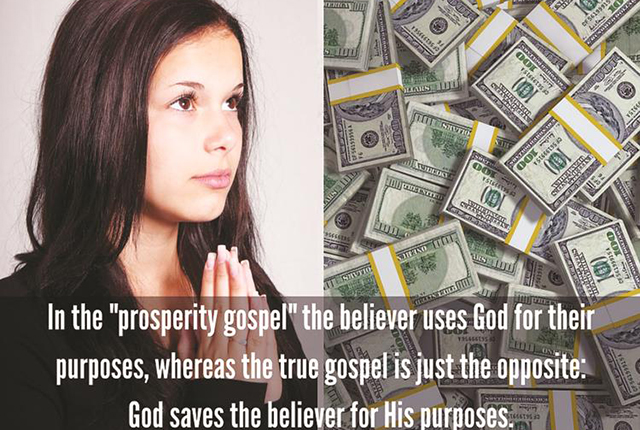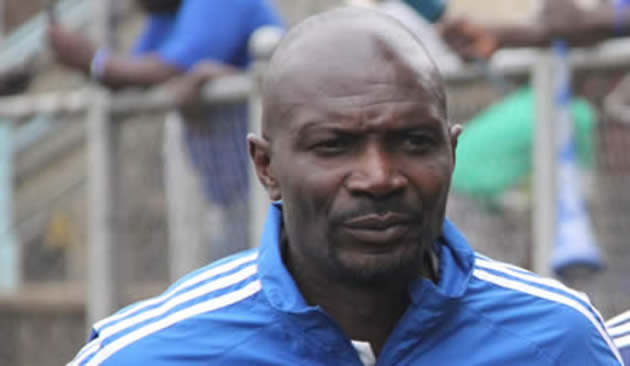Prosperity gospel, search for meaning and riches

Sekai Nzenza On Wednesday
“Kuti ndipfume, regai ndiende ku church ndinopa zvipo,” says my cousin Piri, jokingly announcing that she would like to go to church and give tithes so she can get rich.She is holding a bottle of cold beer and making herself comfortable on the sofa next to Shamiso.
We are at home in Harare on a Sunday afternoon, which is unusual, because most weekends, we go back to the village.
But this weekend was different because we had a baby welcome for Shamiso, my niece who is married to Philemon, the guy who sells airtime, phone chargers and other Chinese made gadgets.
Almost three years ago, they had a little boy called Prince.
This time, they have a baby girl called Shalom.
The name was not chosen by both parents. No.
This name was given to the baby by the pastor of the new evangelical church that Shamiso discovered in town, a few months ago.
Since then, Shamiso tells us all to turn to Jesus.
Doing so, she says, will make us wealthy, healthy and happier.
Piri teases Shamiso about her newfound gospel, forgetting that at one stage, she too went to a few apostolic faith churches, also looking for God and a happy and richer life.
When she remained unfulfilled spiritually and materially, Piri stopped regular worship and started drinking again.
“So Tete, why don’t you let me worship God the way I want to? Why do you criticise me so much?” Shamiso says, breastfeeding Shalom and supporting the baby’s head with one hand while the other hand held on to the television remote control.
For the past few hours, Shamiso has been singing and changing religious channels on television.
Piri says the television needs a break and tells Shamiso that she is not responsible for paying the electricity bill.
What makes Shamiso think she can come all the way from her one room in Chitungwiza, stay with us for the whole weekend, enjoy a hot shower, drink clean water from a tap without standing in line like the residents of Chitungwiza suffering from water shortages, drink tea, eat bread and jam, then enjoy plenty of meat and sadza?
“Watching well-dressed preachers asking poor people to donate money to the church so the poor people can become richer is not only a lie, it is a sin,” says Piri.
My cousin Reuben, the one who used to live in Australia and has left his whole family there because he has a business here, sits next to Shamiso.
He is sipping a glass of whisky on ice, his favourite drink on a Sunday afternoon.
I take baby Shalom in my arms, playing with her fingers and tickling her feet.
Shamiso ignores us all and changes channels again, looking for the television gospel that will inspire her today.
“Rather than force us to sit here and watch American-type preaching, why don’t you switch the television off and tell us more about this Jesus that you have recently found?” Reuben asks Shamiso.
“Sekuru Reuben mune shuwa? Kutanga Shamiso nenyaya yekuwana hupfumi kana ukatendeuka? Ini ndakwana naye kumba uku,” says Philemon, meaning, please do not ask Shamiso to tell us how one can get rich once they turn to Jesus.
Philemon walks out of the room and stands outside, playing with his phone, beer in hand.
Reuben switches off the television.
Shamiso sits up and nicely poised, she explains that the Bible says you can get rich if you believe in Jesus and give money to Him. She has memorised verses that talk about riches.
Reuben then tells Shamiso to give him a chance to speak.
He begins by telling Shamiso that her new-found religion is not new.
It is called prosperity gospel, a kind of worship that has its origins in the United States where it is very popular.
Prosperity gospel is built on something like a Christian belief which was popular in America a long time ago.
At that time, it was known as New Thought and its philosophy taught people that the road to health and wealth comes from thinking, believing and speaking the right words.
Since then, this prosperity gospel has spread from America to many parts of the world, including Zimbabwe.
Prosperity gospel appeals to the natural human desire to be successful, healthy and financially secure.
Within America, there is a desire to achieve the American dream such as owning your own home, two or maybe more cars, financial security and a happy family.
Hidden in the idea of an American dream is a consumer culture which makes you feel unhappy about your health, the way you look, your finances and the home you live in or the car you drive.
This means you look at commercial products that promise you a more beautiful and healthier lifestyle.
We Africans are just copying the American style of worship, hoping to be rich materially and spiritually.
Pastor Thuso Kewana from Polokwane, South Africa, has criticised prosperity gospel, saying it has been imported from America and is unbiblical.
It is used by wolves in sheep’s clothing to prey on many charismatic and Pentecostal Christians not only in South Africa, but around the world.
Prosperity gospel twists people’s understanding of God, making people believe that God wants them to give money to ministers, churches or television networks so that they can be blessed with financial, physical and spiritual well-being.
This prosperity gospel continues to spread from America to many parts of the world through books, conferences, internet, television, and even through Whatsup messages.
In most cases, the prosperity gospel prophets are well-dressed charismatic, orators blessed with the ability or talent to preach for long hours, to quote Bible verses without looking at them.
They are also powerful, charming, caring and human.
Some of them have become “too human” and have been accused of the sin of adultery.
Vanhuwo.
Reuben then tells us a story about TB Joshua, a Nigerian prophet who has churches around the globe, including Zimbabwe.
During one of his sermons in Ghana, there was a stampede at Temitope Balogun, T.B. Joshua’s Synagogue Church of All Nations in Ghana where at least four people died and others were injured during the stampede when 1 000 bottles of “Holy Water” blessed by TB Joshua were offered for free.
This water normally costs $39.36. On that day, the water was free. And people died.
Shamiso says those who died went straight to heaven.
“Nguva yavo yainge yakwana.”
Their time to die had arrived.
“Sis, when we used to go to church back in the village, did anyone ever tell you that you would get rich by giving more money?” Piri asks.
I then recall a small church at St Columbus School where we used to worship on Sunday.
When the service was coming to an end, our pastor, Baba Mutemarari announced that it was time to collect gifts, kutora zvipo zvekupa Mwari.
Then Mai Jacha, a little old lady with one eye, would arise from her seat in the corner of the church and start singing: “Tine chipo chakakomba. Chatakapiwa iyesu. Icho chipo ndiye ndiye Jesu. Ndiye chipo chatiinacho.”
We have a gift called Jesus. He is the gift given to us by God.
Mai Jacha stood at the end of each pew, singing and looking at you with her one healthy eye while the sunken blind one shed a small tear.
She handed the wooden plate to us.
If you were holding on to a penny and had second thoughts about keeping it, Mai Jacha’s one eye would make you feel so guilty that you gave just one penny or even more.
Then she carried the wooden plate full of Rhodesian coins and dollars to Baba Mutemarari who prayed for the gifts and blessed us all for our generosity to God.
“Sis, if I was to see Mai Jacha in church again today, I would give her the last dollar in my pocket.
“That woman had nothing but she was spiritually rich. These days, poor people are seen as sources of money. The church is all about money and getting rich,” says Piri.
Philemon comes back and Shamiso looks at him with a frown.
He laughs and says, “You see, I am not the only one who thinks that Zimbabweans are becoming so gullible to all kinds of preaching.
“Who gets rich because they give money to the pastor who then buys himself another Mercedes and another house?
“After church, the smooth talking pastor with a nicely shaped beard drives his big car to the expensive suburbs while you wait for a kombi to return home to your one room in Chitungwiza.
“When you get home, you either buy water at 50cents per bucket or you wait for hours at the borehole to get that free one bucket of water.
“Why does God not give us water? And where is the pastor? Enjoying a bubble bath and dreaming about selling miracle water to the poor at his next sermon.”
Shamiso dismisses Philemon and says she does not want to listen to any more defamatory talk about the gospel.
She switches the television on again, seeking the faith channels. Piri grabs the remote control from her and says, “Buy your own television. Or ask the pastor to give you one.”
Dr Sekai Nzenza is a writer and cultural critic.









Comments